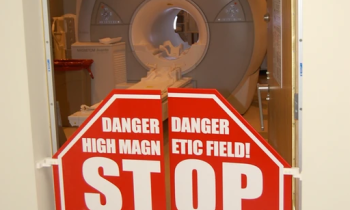Huge cost-savings for private insurers
But for some 'home is best'
According to an as yet undefined ruling of the European Court of Justice, EU patients whose names have been on long waiting lists for surgery in their homeland now have a right to be treated in another EU country, and this is to be reimbursed by their national health insurers.
Such cross-border patient numbers are not yet significant, in part because many people prefer to be treated nearer their homes. However, acute pain over a long period does change minds, and those who have had successful hip ops, for example, in foreign lands have found medical tourism more than worthwhile.
For the private health insurer it holds another attraction. Hospitals in the less financially well off EU and other countries can offer surgical procedures in state-of-the-art units for perhaps 50% less than in many Western countries. So, even adding in travel costs for patients, the savings on major surgery can be immense.
Currently, for the British health tourist, Belgium is said to have leapt ahead of France and Germany as the most popular choice; with the highest number of doctors and hospitals, Belgian costs for private surgical treatment range between 20–50% less than those in the UK (Gastric bypass - UK £11,800, Belgium £5,000; total knee or hip replacement - UK £10,300 and £9,000, Belgium £6,500 and £5,600 respectively). Other, newer EU member states, e.g. Malta, Estonia and Latvia, are also offering surgery to foreign patients, and all are reported to have excellent surgical facilities. Yet, they can cost up to 70% less than in other countries (e.g. private hip replacement: £4,000).
One day, might such cost savings also attract our national health insurers? As yet, the concept is still quite novel to private insurers.
Medical tourism and the health insurer
Since 2000, US health insurance premiums for employers rose 73%, and average employees’ contributions rose 143%. In 2004, the average US patient’s hospital bill (US$6,280) was twice that of other Western countries.
Thus a few private health insurers in the USA have already recognised the economic value of what’s on offer in Eastern countries and are carving a niche in this market. One, IndUShealth in Raleigh, North Carolina, specialises in sending certain medical cases for treatment in India, and some to Thailand and Indonesia.
In India IndUShealth works with the Wockhardt Hospitals Group, owned by a large Indian pharmaceuticals and biotechnology firm. With modern facilities in Bangalore, Mumbai, Hyderabad, Nagpur and Calcutta, this group has created a division specifically for international patients, which includes chauffeured airport pickup, or by life support ambulance, with interpreters to hand. These modern hospitals carry out complex surgical procedures and many of the doctors have either received their medical training in Western countries or have worked in them.
Wockhardt Hospitals states that its services compare ‘more than favourably with American or European Hospitals’, and indeed its Mumbai hospital is one of only 70 hospitals worldwide that has accreditation from Joint Commission International (JCI), USA, the international arm of the Joint Commission on Accreditation of Healthcare Organizations that evaluates quality standards of US hospitals.
The Group also points out that its facilities are not only cheaper than in the USA and other countries, but so are Indian pharmaceuticals. In addition, the private rooms are more luxurious than most, providing air conditioning, a computer, TV, DVD Player, en suite bathroom, sofa-bed for a companion, room and laundry services, etc.
In a survey by United Group Programs, an established Florida-based insurer, to examine the benefits of overseas treatments in India and Thailand, the firm found that a heart bypass would cost US$16,000 in Thailand, and US$80,000 back home. In addition, the facilities and care proved equal to, or even better than in the US. The ratio of nurses to patients was high, and many doctors were US-trained or had practiced there. The insurer now works with a Thai hospital.
Other US firms are cautiously examining the feasibility of overseas care for patients, specifically with hospitals that have Joint Commission International accreditation or accreditation from The International Standards Organization in Geneva.
The numbers of patients receiving insured treatments in the Far East are as yet only in the hundreds, but the market is revving up at a remarkable rate.
Suggested hazards in medical tourism:
• Surgery followed by lengthy air travel
• Limited malpractice laws to protect patients
• Frequently, no prior referrals needed from patients’ own doctors.
So far, most people (around 65%) who independently seek surgery beyond their own boundaries want dentistry or cosmetic surgery, often due to far lower costs elsewhere. Referrals are obviously vital for cosmetic surgery because would-be patients might suffer underlying psychological problems for which treatment is the better course.
The patients? For some, home is best
In the USA, Mexican workers have been cross-border patients for decades (insured largely via their agricultural associations, though nowadays by more cross-border insurance plans).
Although given a choice of plans by insurers, which include care in the USA, most choose the Mexico-based care plans, and currently around 150,000 Mexicans and their families are covered for healthcare in Mexico. Premiums for plans sold by Blue Shield of California, Health Net of California and the Mexican firm SIMNSA, can be 50% cheaper than traditional US insurance for workers and their employers.
The insurers are said to check that the physicians used are licensed in Mexico and meet any specialty board requirements. In medical emergencies those insured can be treated either side of the US-Mexico border.
Since the majority of the Mexican workers show they prefer to see Mexican doctors in their native land, the same could be assumed for the majority of other nationals.
The future of medical tourism clearly depends on many factors.
08.03.2007









